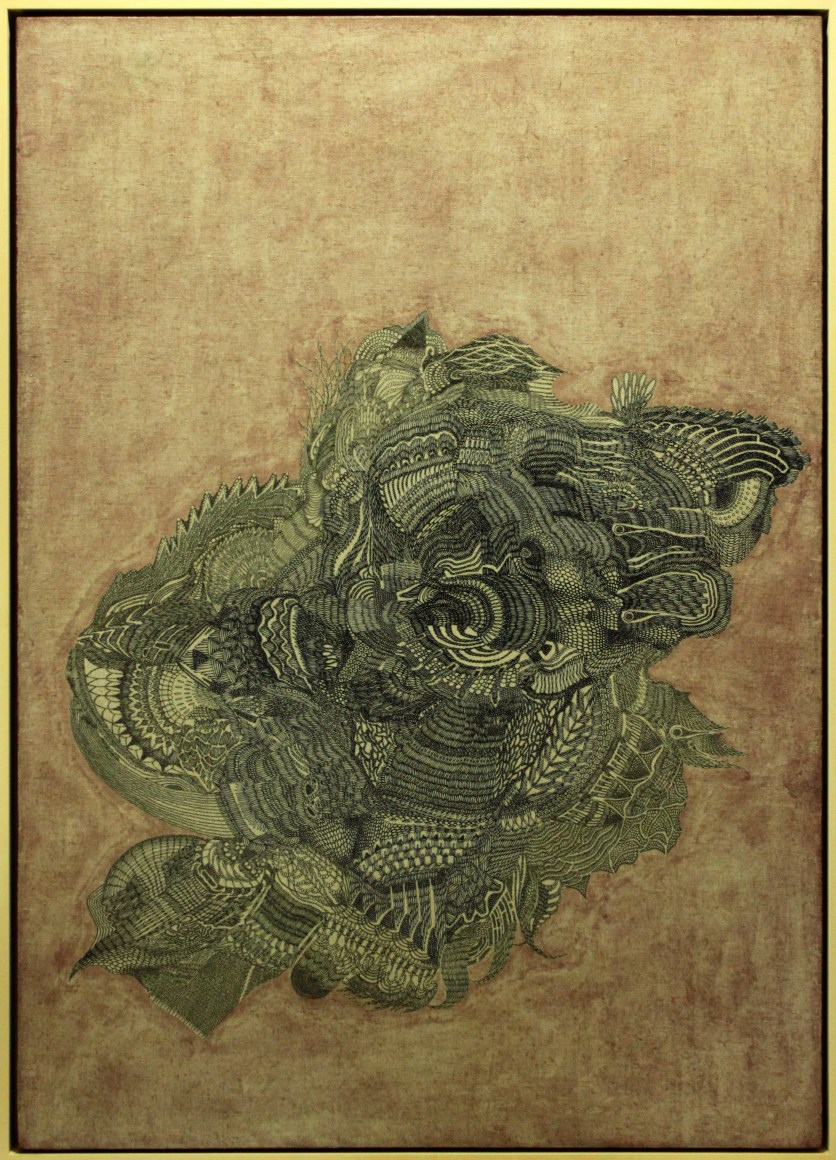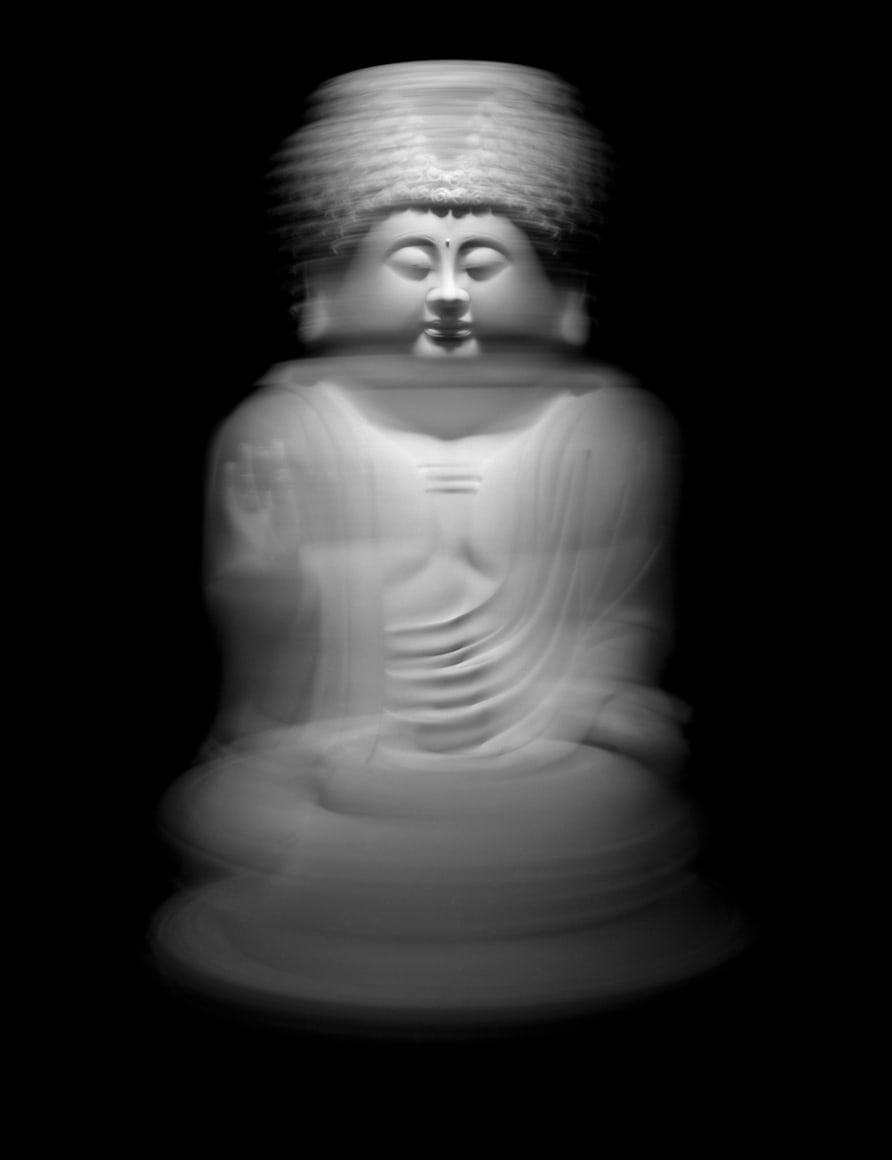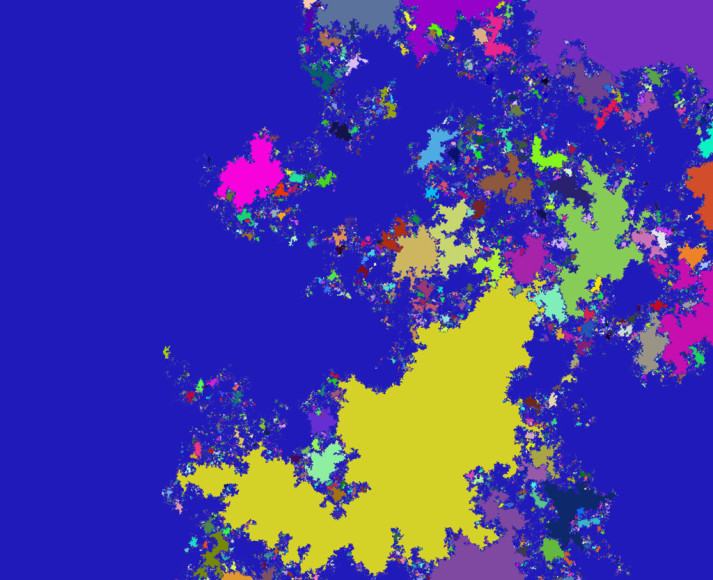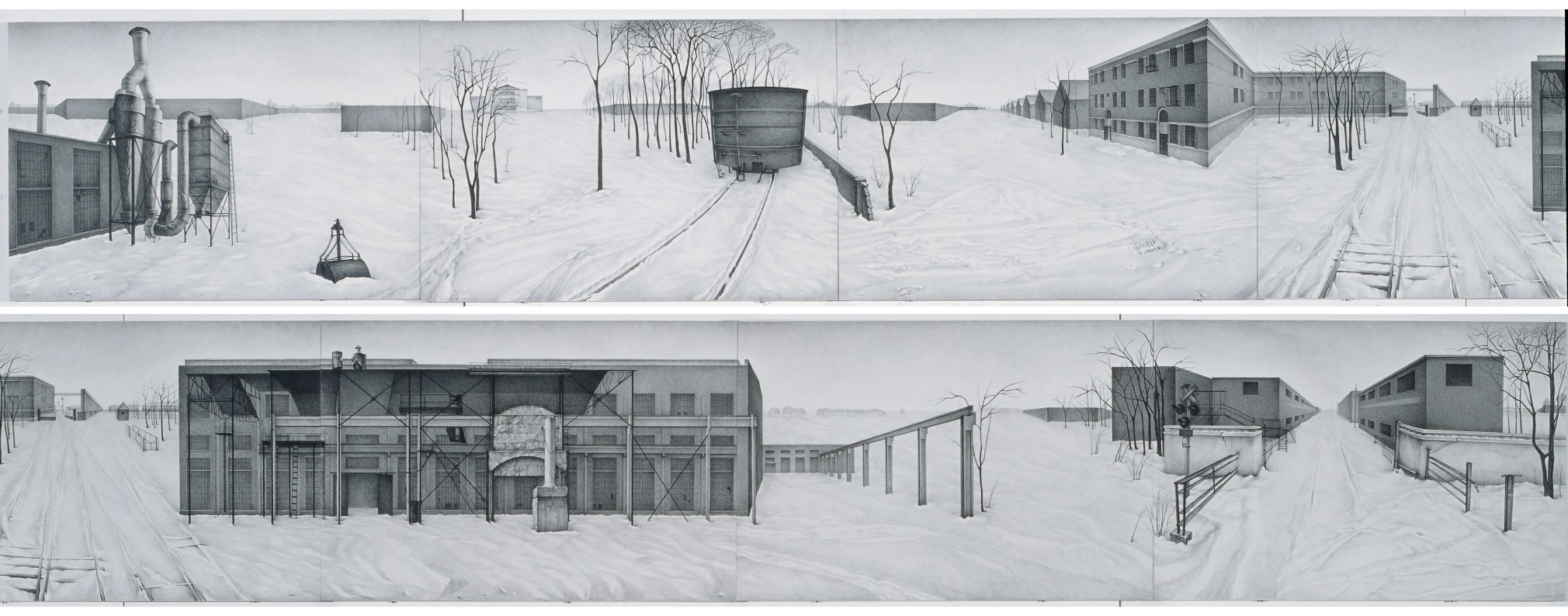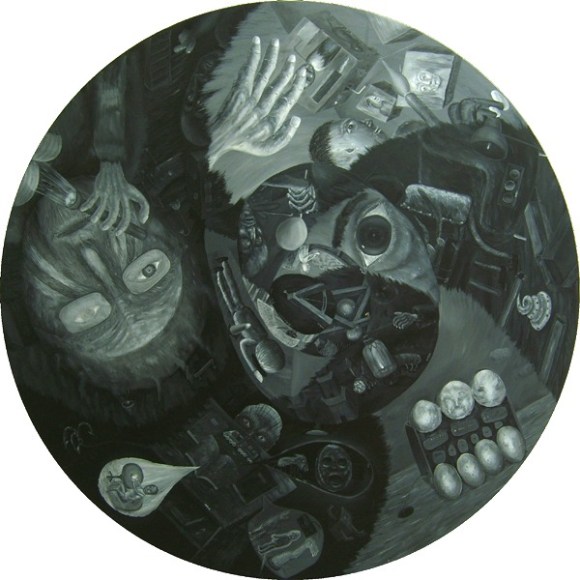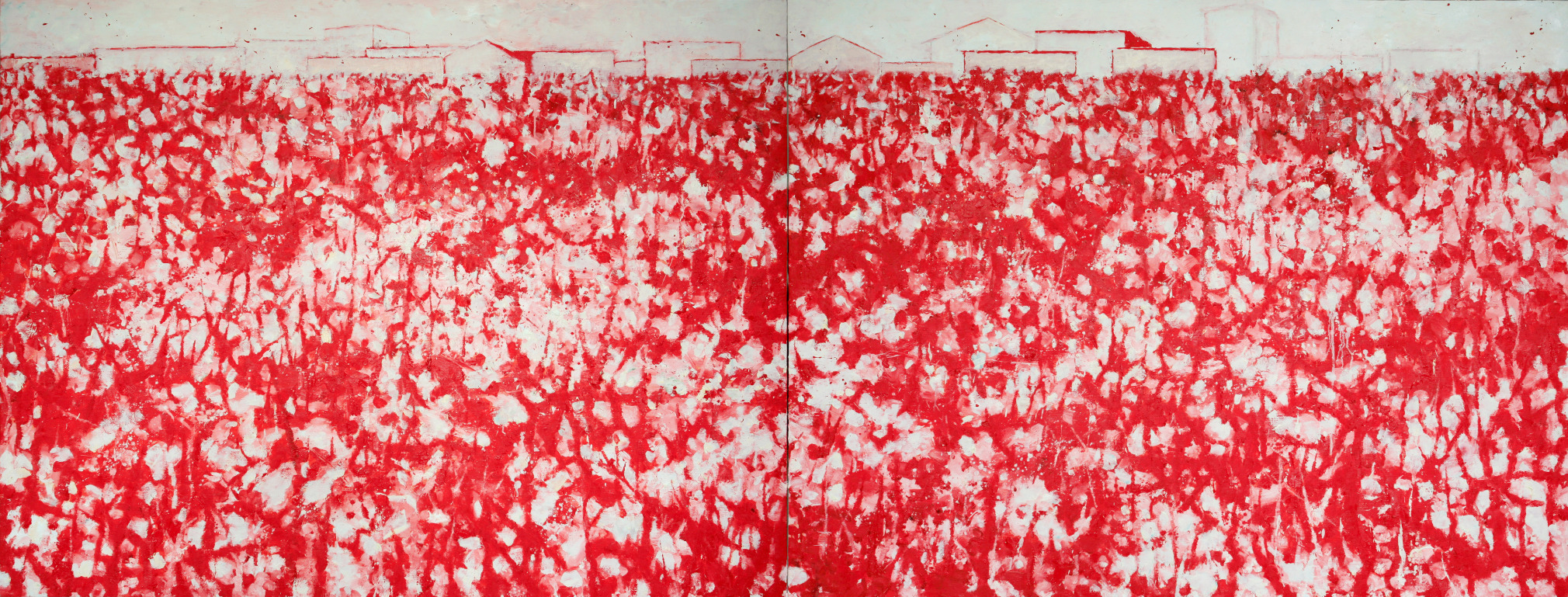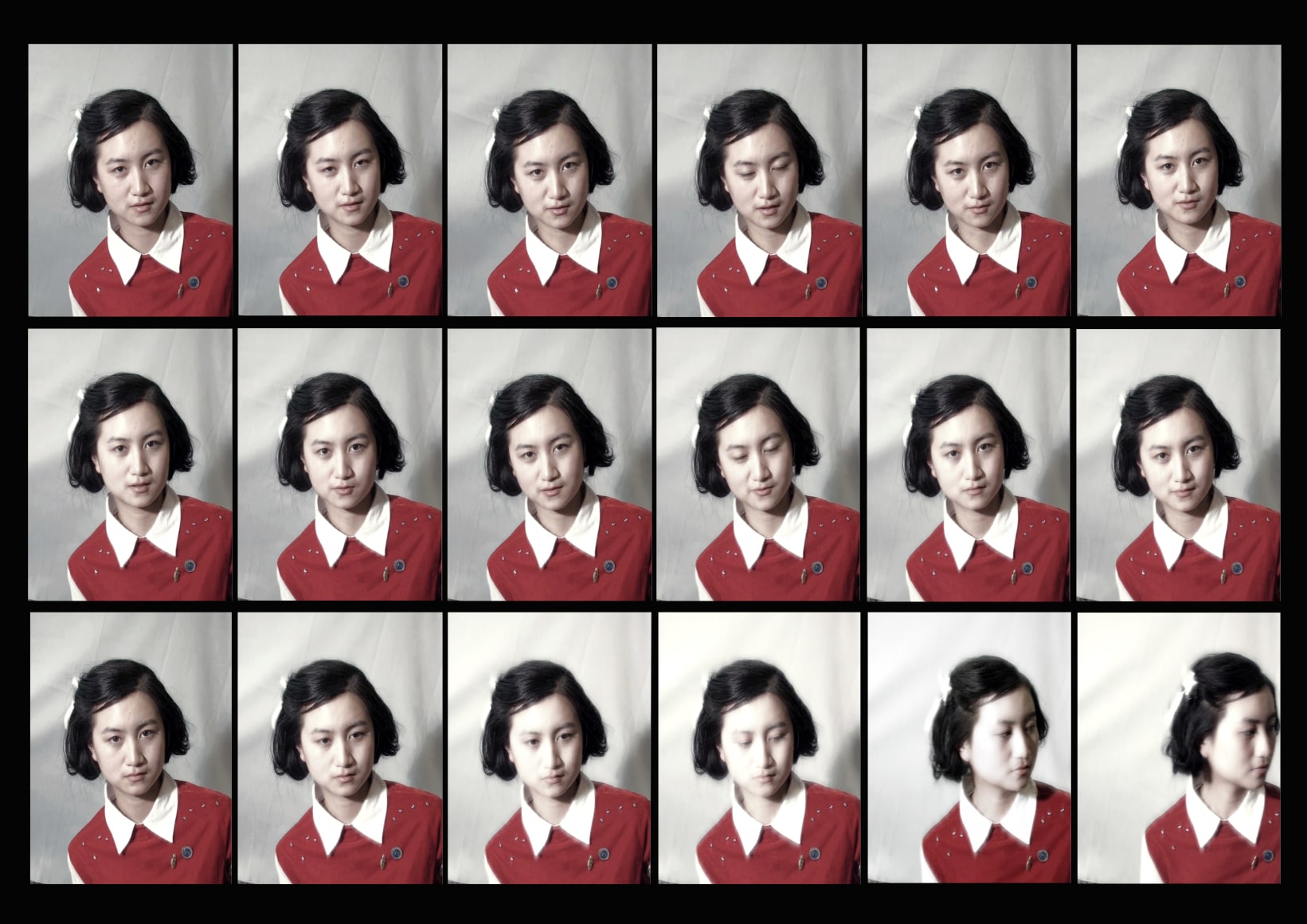Chambers Fine Art Beijing is pleased to announce the opening of Make it New, a group show of work by young artists not previously shown at Chambers. The exhibition title comes from the American poet Ezra Pound who claims to have based his command to young artists on an inscription engraved on the bathtub of the 18th century BCE Emperor Cheng Tang, founder of the Shang Dynasty. Here we are presenting the work of seven artists - Mi Mai, Su Zhiguang, Yang Dawei, Ye Funa, Zeng Yang, Zhang Dun and Zhu Changhai - who work in a variety of media including painting, video and photography. A visually exciting range of works offers glimpses into the ways that younger artists are ‘making it new’; how they are developing their own creative vocabularies and new conceptual approaches.
Ye Funa (1986, Yunnan) shows her Family Album series in which she stages split-screen video performances that re-enact period family photographs. A gentle exploration of the multiple nature of personal identity, these works create a thought-provoking narrative of shared family relationships across the decades. Zeng Yang (1981, Kunming) also creates narratives that explore the ‘structure ‘and ‘order’ of human affairs. In circular kaleidoscopic canvases fragments of stories circulate. With no defined beginning or end, the works offer intriguing multiple narrative possibilities as the viewer enters and leaves the sequences of images at a place of his or her own choosing. Mi Mai (1982, Hunan) and Yang Dawei (1983, Liaoning) come from opposite ends of the country and offer distinct visual approaches. Mi Mai’s Random Series are remarkably coherent and colorful abstract compositions that are actually generated through a random digital process of the artist’s own devising. Meanwhile, the lush paintings of Yang Dawei offer glimpses of landscapes of China’s North East which he treats both with tact and a surprising audacity. This is most clearly seen in Red Landscape where the artist’s impulsive treatment belies a strong sense of reason and order. Zhang Dun (1979, Liaoning) presents an elegant and rational large scale pencil drawing that nevertheless has the capacity to unsettle the viewer with its desolate factory buildings, abandoned rail tracks and lonely locomotive sheds. In contrast the obsessive, graphic imagery of Su Zhiguang (1983, Guangdong) suggests an internal world and a persistent personal questioning. Finally, Zhu Changhai (1976, Beijing) presents photographs of objects placed on motorized turntables as they dematerialize in front of our eyes, converting familiar forms into dynamic simulacra.
Over the past decade Chambers Fine Art has been at the forefront of introducing Chinese artists’ work to the attention of international audiences. More recently Chambers has engaged in a concerted effort to include the work of promising young artists to its roster of established names. Our conviction is that among the artists presented in Make it New we will see some of the future important names of the upcoming generation.
北京前波画廊非常荣幸地宣布将于3月12日起举办当代青年艺术家群展《创新》。展览标题源自美国诗人埃兹拉•庞德的著作标题,庞德声称这句话出自于殷商开国之君商汤王在浴盆上的刻字:“苟日新,日日新,又日新”,在书中庞德告诫年轻一代艺术家,提醒自己时刻不忘在艺术上的革新。.
此次展览将向大家推出曾扬、叶甫纳、朱昌海、米麦、杨大慰、张盾、苏志光七位青年艺术家,展览的作品形式涉及绘画、影像和摄影。在此次展览中,几位年轻艺术家的作品带来的不仅是一场纷繁的视觉盛宴,在作品语言及所代表的艺术观念上还呈现出一种新意,如叶甫纳(1986,云南)的作品《家春秋》系列中,艺术家试图通过结合现当今新媒体技术模拟出老照片里的时代记忆,以类似双簧表演的形式,摆拍和表演讲述着照片中的自我身份,不乏诙谐与幽默感。这种多重身份穿越时空般的叙述,形成了连带状的秩序美感。同时,这种美感也反映在其他几位艺术家的作品中。.
曾扬于(1981,昆明)在作品中将统摄人类社会的“结构”和“秩序”安排进一个个循环的故事中,使得“结构”和“秩序”具有无限的可变性,因为这些故事既没有起点也没有终点,观众可以进行自己的选择,对于不同的人而言,从同一件作品中阅读出可能并非相同的故事。每个人的选择和理解差异使得曾扬的绘画在同一个视觉形式表达之中,具有了不同的结构和秩序。.
米麦(1982,湖南)和杨大慰(1983,辽宁)分别生活在南北方两个完全不同的地域。米麦一度痴迷于大自然,总希望从更广阔的世界中寻找到神秘而令人振奋的力量,并运用到创作中。他的《随机绘画》系列作品就是在一种极为无序而随机的状态下进行创作,而正是这种无序创作,有意而无意地呈现出令人赞叹的规则美,事实上,这也有意而无意地符合了抽象主义所提倡的“把一切不带任何提醒,不带任何对于现实的回忆的思想”观点。在杨大慰的作品中,可以看到令人印象非常深刻的东北地域风景,这些风景时而张狂,时而委婉,最为集中的《红色风景》,则体现了在极度狂躁情绪下的理性和秩序,这不仅仅是风景之美,也是一种哲学之美,理性之美。.
与此同时,张盾(1979,辽宁)则以非常优雅、理性而规则的铅笔素描震慑着观众。荒凉的厂房、废旧的铁轨、落寞的车厢,不难看出,在如何驾驭和把握形式美方面,她有着超乎常人的掌控力,从三维到平面,再从平面回到三维尺度,运用自如。苏志光(1983,广东)早期的《城市步伐》这一交互艺术的创作,从更深层面来讲,融入了对社会和现实生活中存在的困惑和疑问,也是通过这些重重解惑,他所挖掘和研究的对象也随之发生转型,转而关注起在实验艺术中摸索出一种奇特而神秘的物象图案。对朱昌海(1976,北京)而言,他的作品更多关注和挖掘日常生活中被人忽视的部分,突出象征性、观念性以及细节的变化与异化。如此次展出的《旋转系列》,茶杯在无限旋转的条件下消失了其本质形象而产生了一种新的意义,循环而规则的视觉画面传达着艺术家最深刻的看法和认识。.
近几年来,前波画廊一直紧密关注着中国当代艺术的进程与变化,不断为中国当代艺术的发展及向西方介绍和推动中国当代艺术注入新鲜的血液。此次群展融合了多种新观念,互动的同时,能彼此吸收和采纳,彼此激发灵感。前波画廊多年来对青年艺术家的关注今后还将继续,也会在为发掘新起之秀的过程中和其他各画廊一起努力,为中国当代艺术创造出一片欣欣向荣。

